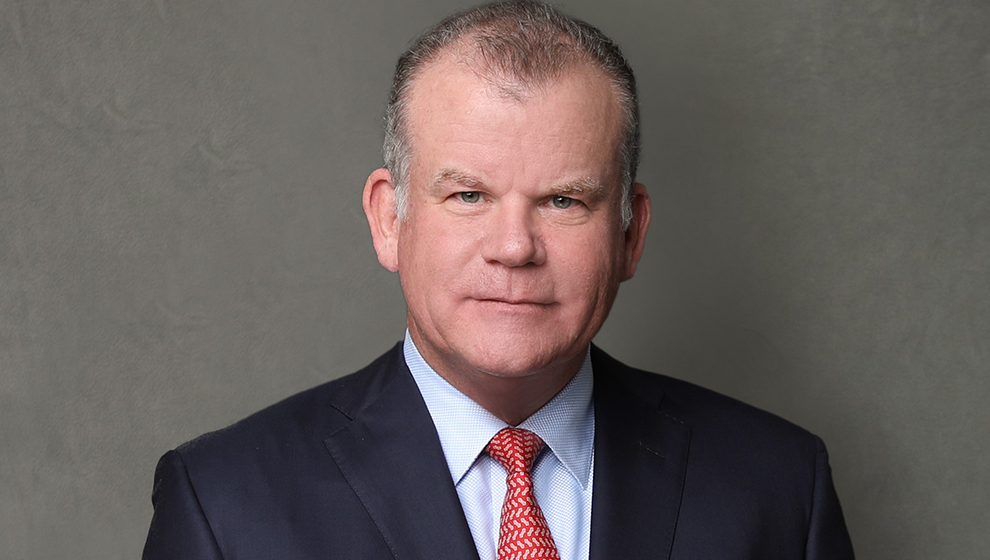We hear from Sam Bassett, who shares his insights gained from an extensive career in criminal defence.
Can you tell us about the skills that you believe are necessary to perform effectively as a defence attorney?
Being a criminal defence attorney requires a combination of skills. Those skills include empathy, patience, attention to detail, oral and written advocacy and human relations. Every day is a little different and you deal with novel situations on a regular basis. You must have trial skills as well, though the vast majority of your cases do not go to jury trial. Performance at a jury trial is a very significant distinction that can add to your credibility among your peers and other legal professionals. I am often called upon to consult with attorneys regarding potential criminal law issues which can arise in the course of representation in other fields such as healthcare law, family law and business litigation.
How effective is law school at instilling these skills in students?
Law school provides a foundation for knowledge of the areas of law that are critical in criminal defence. The most important topics would be evidence, constitutional law and criminal procedure. However, law school does not fully prepare you for courtroom advocacy, though more schools are offering experience through criminal defence clinics and similar programs. There is an increasing level of interest in criminal defence in law schools, which is a positive development.
Do you have any suggestions for law students looking to gain relevant experience or knowledge outside of these programs?
I strongly suggest that anyone interested in criminal defence get a job or internship at a law firm or District Attorney’s office during their law school years. This will allow you to see real-world application of criminal law and can also generate connections for post law school career options.
There is an increasing level of interest in criminal defence in law schools, which is a positive development.
How does the field of trial advocacy relate to this?
Trial advocacy is an essential skill. You can begin developing the skill in law school, if given opportunities. However, real world experience is a necessity and I highly recommend working in a law office where criminal defence lawyers are trying cases to gain those skills before you try your first case.
What steps did you take to develop these skills at the beginning of your own career?
I took advantage of mock trial competitions in law school and trial advocacy programs in law school as well. Most importantly, I attended mock trial seminars in my early years as a lawyer to practise my skills with instructors who were experienced trial lawyers. Finally, I worked for highly skilled trial lawyers throughout the first two decades of my criminal defence career.
What recent trends have you observed in the criminal defence space?
A trend I have observed over the past 15-20 years is that criminal defendants have been afforded more rights and a rigorous examination of their cases due to the pervasive exposure of cases where defendants (most of them minorities) have been shown to have been convicted when they were actually innocent. As a result, more states procedures require disclosure of all evidence in any case be provided to the defence in a timely manner. There is also a commitment to dedicating more resources to the defence of the indigent, though funding is still lacking.
In what ways has this impacted the way you work?
I have supported the development of indigent criminal defence practitioners through the organisations TCDLA and NACDL. These groups play an integral role in advancing the cause of providing better advocacy for those who cannot afford to hire their own attorney. I have also called upon public defenders for brainstorming on some of my own cases as they have a unique perspective in the court system.
A trend I have observed over the past 15-20 years is that criminal defendants have been afforded more rights and a rigorous examination of their cases
How do you expect the field to develop in 2022 and beyond?
I expect the trend toward more rigorous criminal defence to increase over time as our population continues to increase and as criminal cases take on higher profiles. The pervasive media coverage in some cases has shone a light on what was once a neglected and ignored issue with regard to fairness in the system. I anticipate more resources will be devoted to criminal defendants who cannot afford a lawyer and they will receive a better defence.
Will this expected increase in the lawyer population be enough to address the case backlog in Texas, or do you believe further measures will need to be taken?
I suspect the backlog will need further court resources, such as visiting judges and more courts, to assist in reducing the backlog of criminal cases that need to go to jury trial in particular.
What advice would you give to a recent law grad who aims to succeed as a defence attorney?
My advice to a law grad who wants to succeed as a criminal defence attorney is to work under attorneys who have been practising for many years. Sharing experience with a seasoned trial lawyer will teach you more than you can imagine. I do not recommend leaping out on your own immediately as a solo. For those that do, I strongly recommend you find a mentor or mentors who can provide you guidance in your first few years of practice. You will gain invaluable knowledge and experience from seeing others work.
Was there a particular mentor or group of mentors who informed your own practice when you were starting out?
I worked initially for two experienced lawyers who had many serious and high-profile cases. They encouraged me to get involved in TCDLA (Texas Criminal Defence Lawyers Association) and that has been a core group for me throughout my career. I was recently President of TCDLA. More importantly, TCDLA provides excellent CLE programs and materials as well as a solid networking group of great attorneys throughout the State of Texas.
About Sam Bassett
Please tell us a little about your journey into law.
I wanted to be a lawyer beginning sometime in high school. Though I was not certain at that time, I was drawn to criminal law and criminal cases. I worked as a runner for a civil law firm in college and decided to apply to be a clerk at a criminal defence firm while in my first year of law school. I was fortunate to be a clerk for a firm in Austin (White and Allison, PC) which was working on some high-profile cases and trials while I was a clerk. I learned a great deal from watching my mentors handle those cases. The most high-profile case they handed was State v Michael Morton. Michael was convicted of murdering his wife, yet 25 years later he was freed from prison when it was shown that he was actually innocent of the crime.
Would you say that miscarriages of justice like Michael’s case are of particular importance to you? Are there other kinds of cases that you find especially interesting to work on?
Michael’s case had a huge impact on my perspective of practising criminal defence as it showed that our emotions or intuitions may not always be correct and the high standard of “beyond a reasonable doubt” needs to be emphasised more than ever in our system.
I enjoy cases involving allegations of criminal activity within the context of parallel litigations, such as family law. It never ceases to amaze me how much the emotion of a divorce or child custody battle can lead to false allegations of assault and/or child abuse. Those cases are very interesting to me as they are complex, with many moving parts.
[ymal]
Is there a career accomplishment that you are particularly proud of having achieved?
Though I have had many acquittals in the practice of law, I would have to say I am most proud of working with young people who are having problems and influencing them toward a clearer path. I occasionally receive letters, cards and emails from people I represented years before talking about how I played a role in turning their life in a more positive direction. That is what keeps me coming to the office after 33 years.
In 2009, the Dallas Morning News nominated me for Texan of the Year for my work as Chair of the Forensic Science Commission. That work was among the most interesting of my career, even though I was replaced as Chair of the Commission for questionable political reasons.
Can you tell us about your plans for the remainder of the year?
With the COVID pandemic winding down (hopefully), I anticipate having several jury trials the remainder of this year. There is a backlog of cases in Texas and many of these cases would normally have been tried years ago.
Do you have any closing comments to make about the current climate for defence attorneys and what the future of the sector might hold?
The career of a criminal defence lawyer can be tough and stressful, as you are dealing with many difficult situations. Often, you are not popular with the public as they tend to associate you with clients charged with serious crimes. However, I have found it to be quite rewarding as I believe there is no other area of the law which involves standing up for foundational rights of citizens in our society. To add to that, in the process of fighting for your clients’ rights you also have many opportunities to help your clients overcome difficult personal issues.
Sam Bassett, Defence Attorney
Minton, Bassett, Flores and Carsey
1100 Guadalupe St, Austin, TX 78701
Tel: +1 512-476-4873
E: SBassett@mbfc.com
“My name is Sam Bassett. I have been practising criminal defence in Austin and surrounding counties, as well as throughout the State and country, since 1988. I graduated from the University of Texas School of Law and the University of Texas School of Business. I grew up in San Antonio, Texas. I have been board-certified in criminal law since 1994. I have tried dozens of jury trials to verdict.
“My firm is Minton, Bassett, Flores and Carsey (formerly Minton, Burton, Foster and Collins). This firm was established in 1963 in a red brick residence next to the Travis County Courthouse. The founding member, Roy Q. Minton, retired in 2015. The firm has been known since the early 1960s as the go-to firm in Central Texas for major criminal and family law matters. Historically, the firm has been involved in many high-profile cases involving politicians, public figures, athletes and business figures. The firm has nine lawyers and our practice areas include: criminal defence, family law and civil litigation.”





















